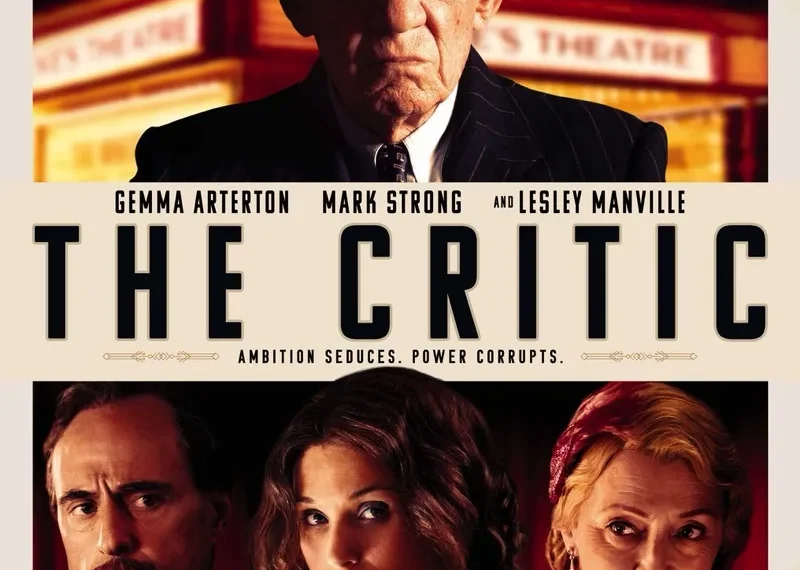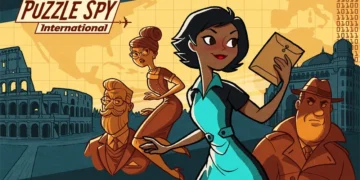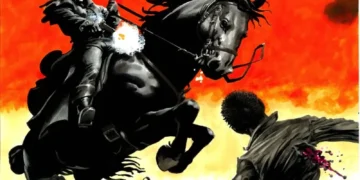Cast: Ian McKellen, Gemma Arterton & Mark Strong
Genre: Crime, Drama, Mystery, Thriller
Director: Anand Tucker
In Irish Cinemas: Now
The arts have seldom been kind to critics, and it’s easy to see why. Rarely are critics cast as the heroes in stories. Instead, they’re frequently depicted as dour, heartless, and somewhat sad figures. In many portrayals, they’re failed artists, bitter from their shortcomings, who seem to exist solely to tear others down. Worse still, some are shown as sycophantic opportunists, eager to ingratiate themselves with the powerful or famous, hoping to bask in the glow of someone else’s success. This unflattering image of the critic reflects a longstanding tension between creators and those who pass judgment on their work.
Without delving into philosophical or factual arguments about the type of personality that gravitates toward criticism, it’s clear that the drama critic in The Critic embodies the most exaggerated and negative stereotypes associated with the role. The character amplifies these traits to absurd and comical extremes, turning the archetype of the critic into a caricature of pettiness, arrogance, and exaggerated self-importance. Rather than offering constructive or insightful commentary, this critic revels in his role as a relentless naysayer, pushing the boundaries of absurdity for comedic effect.

Set in 1930s London, Ian McKellen stars as Jimmy Erskine, a seasoned theatre critic whose reviews can either elevate or destroy a play or performer’s career. Erskine is driven by a near-religious commitment to honesty, delivering his critiques with as much flair as possible while accepting the personal costs of this dedication. In a foreboding voiceover, McKellen intones, “The drama critic is both feared and reviled for the judgments they must render. They must remain detached and entirely solitary in their role.

When a woman dares to engage him in conversation after a play, sharing her thoughts on the production and performances, he quickly demands that she be expelled from the restaurant, insisting that he needs protection from the public. Similarly, when actress Nina Land confronts him about the glaring inconsistencies in his reviews of her work, he outright refuses to apologise. Furthermore, he dismisses the request of the newspaper’s new editor, David Brooke, who urges him to adopt a more temperate approach. “Be kinder,” Brooke advises, suggesting he embrace a style emphasising “more beauty, less beast.”

What begins as a sharp and witty satire soon devolves into a chaotic and convoluted tragedy, weighed down by increasingly far-fetched plot devices. The film could have benefited from heeding its own anti-hero’s advice to the struggling actress: “Do less.” The fact that a talented actress like Lesley Manville, who plays Nina’s mother, is relegated to a handful of scenes and remains only marginally relevant underscores this issue. Although the film aims to weave a complex tapestry of interconnected narratives, it ultimately falls short, as many characters need more depth and development for us to form a genuine emotional connection.

The Critic, directed with flair by Anand Tucker and penned by Patrick Marber, is only loosely inspired by Anthony Quinn’s novel Curtain Call. While Quinn’s book leans more towards a murder mystery, the film diverges significantly, focusing instead on a man’s extreme measures when his career and personal freedom are at risk. The protagonist, Erskine, is portrayed as a once-respected critic whose unchecked power has led him to delusional arrogance. His critical reviews are not merely destructive but also possess the power to inspire. In a testament to the complex nature of his influence, even the actress he repeatedly dismantles acknowledges that his writing initially ignited her passion for theatre.

The film presents some intriguing concepts and features strong performances, particularly from Ian McKellen, who immerses himself in the role of a charismatic but monstrous character. His portrayal is compelling and engaging, though the character’s appeal wanes as the story progresses. Additionally, Erskine’s sexual orientation, an open secret, becomes problematic with the advent of a new boss and the growing influence of fascist ideologies around him. Despite these elements, the film fails to deliver a genuinely impactful or consistently entertaining experience. Its attempt at darkness comes off as uneven and superficial, with many characters ultimately serving as mere collateral damage in Erskine’s ambitions. The premise of a theatre critic as a tyrant is promising, but The Critic struggles to fulfil its potential, falling short of delivering the depth and intrigue it hints at.
Overall: 6/10


















